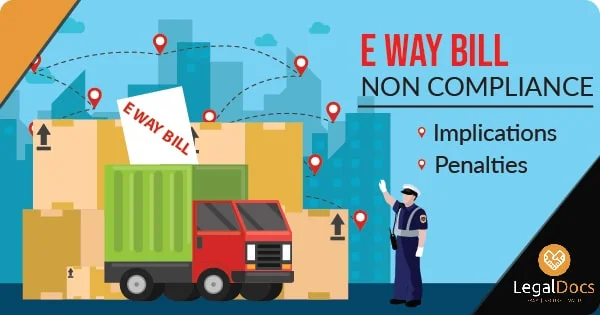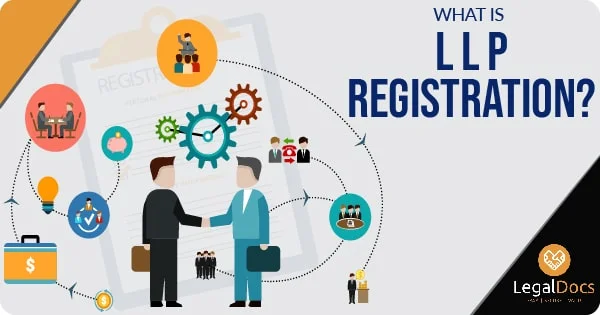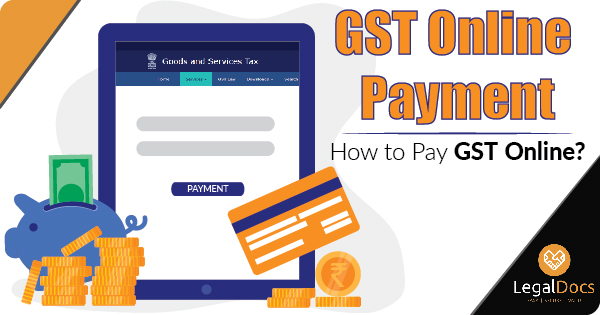E-Way Bill Non-Compliance – Implications and Penalties
E Way Bill Non Compliances
The Goods and Services Act, 2017 is in full force across India. One of the compliances that this act demands is that any vehicle carrying goods above a certain capacity must be able to produce documents on demand. These documents should be able to confirm the origin, nature, and destination of the goods. A GST E-Way bill is required to be generated mandatorily in this regard.
Consequences of Not Carrying an E-way Bill
The E-Way Bill System allows field officers to intercept vehicles at any place and time and demand verification documents. Nowadays, mobile units are constantly on the lookout and businesses can no longer dodge officers at designated checkpoints. During the movement of goods, if the business is unable to produce an E-Way Bill, the implications - both monetary and non-monetary - can deal a serious blow to the business.
Here are the most devastating consequences:
Penalties and Fines
The minimum penalty for not carrying a GST bill is Rs. 10,000. So, if goods are transported without an E-Way bill, a fine is guaranteed. However, if the authorities conclude that this non-compliance was an excuse to evade GST, they can levy a fine which may be equivalent to the amount of tax payable on the particular consignment or Rs. 10,000, whichever is higher.
Seizure of Goods and Vehicle
In some cases, usually of repeat offenders, the goods being transported, and the vehicle can both be impounded. Charges of non-compliance with E-Way bill regulations are slapped. The concerned officer then arrives at the penalty or tax to be levied. The possessions can be recovered only on payment of assessed dues within 7 days of confiscation.
Increased Attention from the GST Authorities
A single case of non-compliance with the E-Way bill is all it takes to draw the attention of the GST authorities. A business may suddenly be asked to produce up-to-date reconciliation of goods stated in GST returns and goods declared during other E-Way bill generation. The consequences can be adverse if the authorities mark the business as a repeat offender.
Frequently Asked Questions - E Way Bill
Here we answer some FAQs regarding the E-Way bill under GST.
Q1 - Who should generate an E-Way bill?
A - Every person registered under the GST who wants to transport goods worth more than Rs. 50,000 at one time shall generate an E-Way bill prior to the movement of goods.
Q2 - How to generate an E-Way bill?
A – On the online GST portal, the information should be filled in Part A of Form GST EWB-01. Then, a unique number will be issued to the consignment.
Q3 – How to calculate consignment value?
A – It is the value declared in the invoice, delivery challan or bill of supply. The final amount shall include all taxes and cesses paid at the central or state level on the consignment.
Q4 – What is the validity of an E-Way bill?
A – The unique number issued to an E-Way bill is valid for 15 days from date of generation.
Q5 – Which items can be transported without an E-Way bill?
A – GST Act has exempted the following classes of goods from the E-Way bill system:
i) LPG (Liquefied Petroleum Gas) for supply to households and Non-Domestic Exempted Category (NDEC) customers
ii) Kerosene oil made available under the Public Distribution System
iii) Baggage transported by the Postal Department
iv) Pearls, precious stones, semi-precious stones, precious metals, jewellery made of gold or silver and coral
v) Currency
vi) Household and other privately owned items which are used
Need further clarifications? Get in touch with our experts at LegalDocs for answers to all your queries.
 Knowledge Center
Knowledge Center


























LEAVE A REPLY: